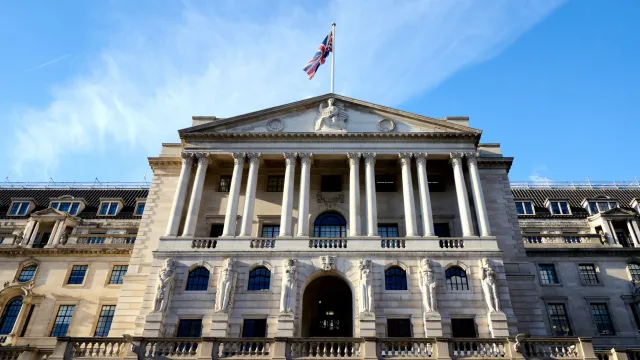London, 3 Aug, 2023 (GNP): The Bank of England raised interest rates by a quarter of a percentage point on Thursday, citing buoyant inflation partly driven by strong wage growth. This move brought the prime cost of borrowing for UK commercial banks to 5.25%, the highest since February 2008 and the 14th consecutive hike since December 2021.
The Monetary Policy Committee’s decision was divided, with six members voting for a quarter-point increase, two for a half-point increase, and one for a pause.
“Recent data outturns have been mixed,” the Bank of England said in a statement. “However, some key indicators, notably wage growth, suggest that some of the risks from more persistent inflationary pressures may have begun to crystallize.”
This rate hike brings tough news for over 2 million UK mortgage holders already facing substantial increases in their monthly mortgage bills due to forced refinancing this year and next. The average two-year fixed-rate mortgage rate rose to 6.85% on Thursday, up from 3.95% in August of the previous year.
Also Read: UK, only G7 economy to decline in 2023
While the Bank of England, like the US Federal Reserve and the European Central Bank, has indicated it will hold off on further rate increases, central bank governor Andrew Bailey mentioned that additional interest rate hikes might be necessary, though not guaranteed, given the evidence on the economy.
Before the recent hike, financial markets predicted the Bank of England’s benchmark interest rate to reach 5.75 percent by year-end as the central bank aims to control rising prices.
Some economists, including Berenberg’s Kallum Pickering, believe that past rate hikes have had a limited impact on the real economy. He warned that the UK could face several more months of de facto policy tightening even after policymakers stop raising the bank rate.
Despite some easing, inflation in the UK remains stubbornly high, with consumer price inflation at 7.9% in June. Although down from a 41-year high of 11% in October 2022, it remains the highest among the Group of Seven nations and above the Bank of England’s 2% target rate. Core inflation, excluding volatile food and energy costs, also declined to 6.9% in the last month.
Also Read: European Union proposes €20 billion fund to bolster Ukraine’s security
Central bank governor Bailey expressed confidence that tighter monetary policy has contributed to reducing inflation and expects it to continue declining in the coming months. The Bank of England’s forecast indicates inflation falling to 4.9 percent in the final quarter of the year, aligning with Prime Minister Rishi Singh’s pledge to voters to halve inflation to around 5%.
The decline in inflation is partly driven by falling energy prices, but Bailey noted that it will take time for these reductions to fully reflect in consumer price inflation data.
Additionally, the central bank also reported that annual wage growth exceeded expectations, rising at an average rate of 7.7 percent in the three months leading up to May. Excluding pandemic-related wage fluctuations, that was the highest rate since the central bank began collecting wage growth data in 2001.

